#play based learning
Explore tagged Tumblr posts
Text
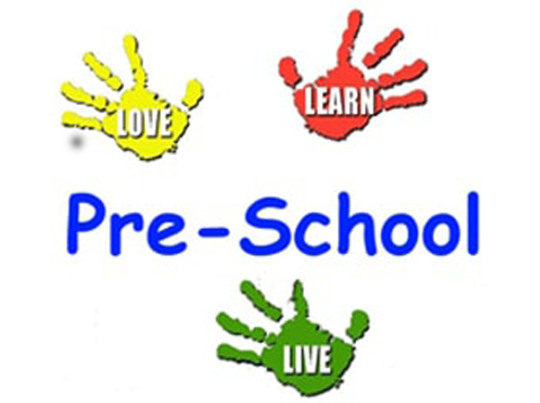
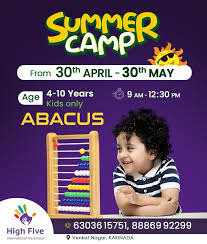
Hi-Fi Play School is renowned for its innovative approach to early childhood education, blending play-based learning with modern teaching methods. It's committed to fostering creativity, curiosity, and social development in young children. With a focus on interactive activities and a supportive environment, Hi-Fi Play School sets a strong foundation for lifelong learning.
#Inter National pre School#Play School activites#High Five#admission open#Play Based learning#Best Play School in kakinada#Parent involvement Prograam#Prenursery Program
2 notes
·
View notes
Text
This made me think of this short documentary. Play based education is so important.
thinking about when i was small, how my mom told me that pipe cleaners were just a tool until people started idly shaping things with them and it grew so popular that they were marketed as crafting materials. and that story about how the original frisbees were disposable pie plates that students flattened to throw. and how when i was a child i had a wooden mancala set with shiny, colorful stones, but on invention it was played with rocks and grooves dug into the dirt. and middle school, paper football and tic-tac-toe and mash and mad libs, games that just need pen and paper. and before that, games of pretend with pirates and princes and masked marauders. how at slumber parties after lights out, we used to whisper storytelling games, i say one sentence and you say the next. and shadow puppets. and the way all the kids in the neighborhood used to divide into teams and throw fallen pine cones at one another. and the floor is lava game, and the quiet game, and the games i play with my coworkers that are just words and retention. and "put a finger down" on the high school bus. and little girls clapping together, and how the first jump-rope was undoubtedly just a length of rope who knows how long ago, and how natural it is to play, how we seek play at every age and with any resources we have and with whatever time we can squeeze it into in a day. i'm not an anthropologist or a psychologist but i think after food and shelter and water and air what comes next is games and stories and laughter. i think that there is nothing -- not sex or fighting or forming unlikely bonds with animals -- there is nothing more human than to play.
117K notes
·
View notes
Text
Jaypee School – Best PRE School in Greater Noida for Joyful Early Learning
Welcome your child to the best PRE school in Greater Noida at Jaypee School, where learning is joyful and development is holistic. Designed for ages 3 to 6, our nurturing environment fosters creativity, confidence, and curiosity through hands-on, play-based learning. With an innovative curriculum, experienced educators, and a strong focus on early literacy, emotional well-being, and social values, we ensure a strong start for every child. Our safe, inclusive, and engaging spaces help lay the foundation for lifelong learning and growth, making Jaypee Preschool the ideal choice for your little one’s early education.
#Best Pre school In Greater Noida#Early Childhood Education#Play Based Learning#Holistic Development#Jaypee Pre school Greater Noida
0 notes
Text

Ricks' mission is to empower intellectually gifted children to thrive and achieve their full potential.

We purposefully uncover and tap into students' interests in order to spark and fuel the passion in their minds.

We nurture both the intellect and heart, opening new worlds for our students, and preparing them to do more and go farther than they ever thought possible, both now and in the future.
#stem#sports#Reggio Emilia inspired#project based learning#Private#Primary#preschool#Play Based Learning#middle school#integrated unit#inquiry based learning#Gifted#foreign language#early childhood#college campus#Camp
0 notes
Text
youtube
0 notes
Text

joys in the life of punk rock preschool include my kiddos gifting me trinkets that MUST go on my jacket
#preschool#outdoor preschool#play based learning#art#kids#punk rock#punk#battle vest#trinkets#this and also the thirty two scratchy pipe cleaner bracelets they have made me this week to match my other bracelets#they use my spikes as stim boards#i love them so much#would die for these kids#queer teacher#trans
5 notes
·
View notes
Text
Homeschooling Tips & Ideas for Homeschooling in Nova Scotia
As a mom who recently took the plunge into homeschooling my 4-year-old, I’m excited to share my journey and a few homeschooling tips that I’m learning as we go. So far, homeschooling in Nova Scotia has been filled with both challenging and rewarding moments. Transitioning from the idea of a structured preschool environment to a more flexible home setting was daunting at first. From adapting our…
#canada homeschooling#filipa jackson#homeschholing for preschool#homeschool#homeschool curriculum#homeschooling for pre k#homeschooling in nova scotia#homeschooling tips#ideas for homeschooling#play based learning#playing with apparel#toronto blogger
0 notes
Text
Tips for Effective Early Childhood Education and Parenting

Enhance early childhood education and parenting with these tips! Encourage play-based learning and foster open communication to build trust. Establish a routine for consistency and promote positive reinforcement to boost confidence. Involve your child in reading activities for cognitive development. Choosing the best play school is crucial for providing a strong foundation for your little one’s future.
0 notes
Text
Play-Based Learning: Where Fun Meets Fulfillment

In the realm of education, there's a growing recognition of the powerful synergy between play and learning.
Play based learning, often associated with early childhood education, has begun to gain traction across various age groups and academic disciplines. Its effectiveness lies in its ability to seamlessly integrate enjoyment with educational goals, creating an environment where fun meets fulfilment.
The Essence of Play-Based Learning
At its core, play-based learning harnesses the natural inclination of human beings, especially children, to explore, experiment, and engage with their surroundings.
It emphasises hands-on, experiential learning over rote memorisation or passive instruction. Through play, learners are not merely recipients of knowledge but active participants in their own learning journey.
Fostering Creativity and Imagination
One of the most profound benefits of play-based learning is its capacity to nurture creativity and imagination. When children engage in imaginative play, whether it's building with blocks, pretending to be characters from a story, or creating art, they are exercising their creativity muscles.
This type of open-ended play encourages them to think outside the box, explore different possibilities, and express themselves freely. As they grow older, this creative mindset becomes a valuable asset in problem-solving, innovation, and adapting to new challenges.
Developing Social and Emotional Skills
Beyond academic knowledge, play-based learning also facilitates the development of social and emotional skills. When children play together, they learn valuable lessons in cooperation, communication, and conflict resolution.
They practice empathy as they take on different roles and perspectives, building the foundation for healthy relationships and effective collaboration later in life. Moreover, play offers a safe space for children to explore and express their emotions, helping them develop self-awareness and emotional resilience.
Making Learning Meaningful and Memorable
Unlike traditional classroom settings where learning can feel abstract and disconnected from real-life experiences, play-based learning makes education tangible and relevant.

Concepts that might seem dry or complex in a textbook come to life when experienced through play. Whether it's learning about fractions by dividing a pizza, exploring scientific principles through hands-on experiments, or understanding historical events through role-playing, play-based learning makes learning memorable by anchoring it in concrete experiences.
Empowering Autonomy and Curiosity
In a play-based learning environment, learners are encouraged to follow their interests and pursue their curiosity. Rather than adhering to a rigid curriculum dictated by adults, children have the freedom to explore topics that capture their imagination.
This autonomy not only fosters a sense of ownership over their learning but also cultivates a lifelong love for learning. When learning is driven by intrinsic motivation rather than external pressure, it becomes a joyful pursuit rather than a chore.
Overcoming Challenges and Misconceptions
Despite its numerous benefits, play-based learning faces its fair share of challenges and misconceptions. Some critics argue that it lacks rigour and structure, leading to concerns about academic readiness.
However, proponents of play-based learning counter that play and academic learning are not mutually exclusive. By scaffolding play experiences with intentional learning goals and guided facilitation, educators can ensure that play-based activities align with educational standards and objectives.
Another common misconception is that play-based learning is only suitable for young children. While it is undeniably effective in early childhood education, the principles of play-based learning can be adapted and applied to learners of all ages.
Whether it's through project-based learning, gamification, or experiential simulations, play-based approaches can enhance engagement and comprehension across diverse educational contexts.
Conclusion
In a world where the pace of change is accelerating, and the future is increasingly uncertain, the ability to adapt, innovate, and collaborate has never been more crucial. program for early childhood education offers a holistic approach to education that not only equips learners with essential academic knowledge but also fosters the skills and dispositions needed to thrive in the 21st century.
By harnessing the power of play, educators can create learning experiences that are not only effective but also joyful, where fun and fulfilment go hand in hand. As we continue to explore new frontiers in education, let us not forget the timeless wisdom that play is not just a pastime but a pathway to profound learning and growth.
#play based learning#childcare incursions#child care incursions#program for early childhood education#music school
0 notes
Text


Hi-Fi Play School is renowned for its innovative approach to early childhood education, blending play-based learning with modern teaching methods. It's committed to fostering creativity, curiosity, and social development in young children. With a focus on interactive activities and a supportive environment, Hi-Fi Play School sets a strong foundation for lifelong learning. Through multicultural immersion and exposure to diverse perspectives, children develop a deep appreciation for global citizenship and cultural understanding. With a dedicated team of educators committed to guiding each child's journey, High Five International Preschool cultivates a foundation that empowers young learners to thrive in an interconnected world with confidence, empathy, and a thirst for knowledge.
0 notes
Text
Jaypee School – Best PRE School in Greater Noida for Joyful Early Learning
#Jaypee Pre school Greater Noida#Best Pre school In Greater Noida#Early Childhood Education#Play Based Learning#Holistic Development
0 notes
Text
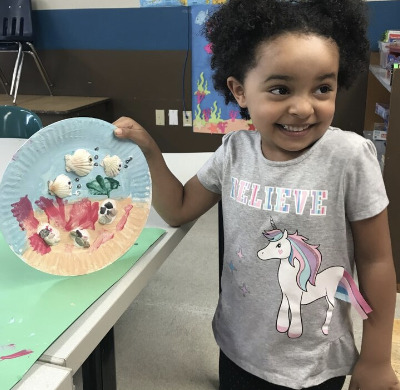
Come tour our campus and see how your child belongs at VCS. Early childhood is a crucial stage of life in terms of a child's physical, intellectual, emotional, and social development. It is a time when children particularly need high quality personal care and learning experiences. We are dedicated to providing each child with early learning experiences to help them grow and lay the foundation for future school success by nurturing them and helping them love school.
The students in our early education program learn and grow through a biblically integrated, Christ-centered curriculum and nurturing environment. Smaller class sizes allow for individual attention to each student.
Infant Care (Birth-2)
We are very proud to be state-certified to care for infant-aged children. We have classrooms specifically designed for infant-aged children and teachers trained to care for your precious little ones.
Toddler Class (Age 2) Children who will be attending our Toddler Class need to be two years old. Rest assured, your child is not required to be non-diapered for this class. We offer full-day care, with a structured morning class Monday through Friday. The children in the toddler program enjoy circle time, art integration, imaginary play, music, story time, play dough blocks, manipulatives through puzzles and construction toys, Bible Stories, outdoor time, and much more.
Preschool (Ages 3-4) Our Preschool classes are academically focused.
Parents needing variations to these schedules may contact the Early Learning Director. The emphasis of our preschool class is socialization: learning to share, getting along with friends in school, and taking turns. Our curriculum includes daily activity, an introduction to the alphabet, geometric shapes, community helpers, science (including many fun hands-on experiments), farm animals, seasons, holidays, Bible class and verse memorization, music program, and cooking classes. Children in this class need to be three years old by August 31st and fully potty trained before school begins.
Pre-Kindergarten (Ages 4-5) We offer full and part-time Pre-Kindergarten classes at VCS.
Our curriculum includes alphabet and number recognition, phonics, penmanship, social studies (community helpers, holidays), hands-on science, arts and crafts, Bible lessons, weekly chapel, painting, music, cooking classes, and outdoor play and development. Our Pre-K classes are designed to prepare our 4 and 5-year-old students to successfully read in Kindergarten. This is the time when we want to capture their enthusiasm for learning and help them grow in their love of learning.
Extended Learning (Childcare) Families that enroll their child may also benefit from extended hours beyond the class times. Our Early Learning Center is a licensed childcare, accredited by Washington Early Achievers, and voted best of Auburn for 2017 & 2018. We use a curriculum that does not duplicate what they are learning in their classrooms but rather provides an extension to learning in a nurturing and structured environment.

#playground#Play Based Learning#infant care#extended care#baby care#toddlercare#smallclasssize#privateChristianschool#childcare#daycare#beforeschool#Preschool#afterschool#pottytraining#prek#summercamp#AcademicExcellence
0 notes
Text
10 Innovative Play-Based Learning Activities Every Preschooler Should Try
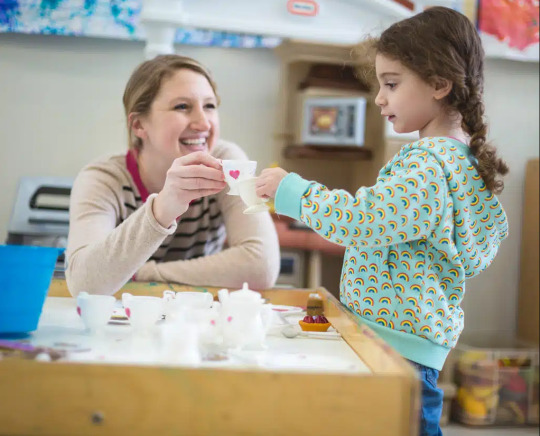
In the evolving landscape of early childhood education, the significance of play-based learning in holistic development cannot be understated. This approach nurtures creativity and social skills and lays a solid foundation for lifelong learning. Introducing innovative play-based activities is key for educators and parents looking to enrich their preschool prep classes or home learning environments. Here are the ten most relevant and engaging activities that promise to make learning an adventure for every preschooler.
1. Sensory Bins for Exploratory Learning
Create sensory bins filled with rice, beans, water beads, or sand. Incorporate objects related to themes being explored in class, such as dinosaurs or space, to encourage tactile exploration and imaginative play. Sensory bins enhance fine motor skills and provide a multi-sensory learning experience.
2. Story Stones for Creative Narratives
Paint stones with various characters, objects, and settings. Children can then use these story stones to create and narrate their own stories. This activity boosts language development and encourages creativity, as kids weave tales from the images before them.
3. Construction Challenges
Using blocks, LEGOs, or recycled materials, set up construction challenges that prompt children to build specific structures. This could range from the tallest tower to a model of their home. Such challenges promote problem-solving skills, spatial awareness, and persistence.
4. Nature Walks and Eco Art
Take learning outside with guided nature walks, encouraging kids to collect natural materials like leaves, twigs, and stones. Back in the classroom, use these materials to create eco-art. This activity helps to build a connection with nature, observation skills, and artistic expression.
5. Role-Play Stations
Set up various role-play stations, such as a grocery store, hospital, or a spaceship. Through role-playing, children develop empathy, learn to cooperate with peers and engage in complex narrative thought. This mirrors real-life experiences in a controlled, playful environment.
6. Puppet Shows and Storytelling
Encourage children to create puppet shows using handmade or store-bought puppets. This could be based on favorite books, original stories, or themes being studied. Puppetry allows children to explore different perspectives and strengthens their narrative and sequencing skills.
7. Musical Instrument Exploration
Introduce a variety of musical instruments and allow children to explore the sounds each one makes. Facilitate a group performance where they can express themselves freely through music. This activity enhances auditory discrimination, and coordination, and introduces basic musical concepts.
8. Science Experiments
Conduct simple, safe science experiments that allow children to explore basic scientific principles. Experiments like mixing colors, observing plant growth, or floating and sinking tests stimulate curiosity and critical thinking.
9. Obstacle Courses for Physical Development
Design obstacle courses that children can navigate through. Include activities like hopping on one foot, crawling under tables, or balancing on a beam. Obstacle courses improve physical fitness, coordination, and gross motor skills.
10. Mindfulness and Yoga
Incorporate mindfulness activities and simple yoga poses into the daily routine. These practices help children develop self-regulation, focus, and awareness of their bodies in space, contributing to their emotional and physical well-being.
Engage, Learn, and Grow with Play-Based Learning
Incorporating these innovative play-based activities into your preschool prep classes or home learning setups can dramatically enrich the preschool experience. By harnessing the power of play, we not only engage children in meaningful learning but also support their overall development. These activities are designed to be adaptable, ensuring that educators and parents can tailor them to meet the unique needs and interests of each child. Whether in a formal play-based learning preschool setting or through informal learning at home, the goal is the same: to provide a rich, engaging, and supportive environment where children can explore, discover, and grow.
Ready to Transform Your Preschool Learning Experience?
Are you excited to implement these innovative play-based learning activities in your classroom or home? Share your experiences or plan a visit to our play-based learning preschool to see these activities in action. Together, we can make early learning a joyous, enriching adventure for every child.
Bubbles Academy Preschool - Bucktown
2184 N Elston Ave, Chicago, IL 60614, United States
+13129447677
0 notes
Text
Tiny Connection LLC
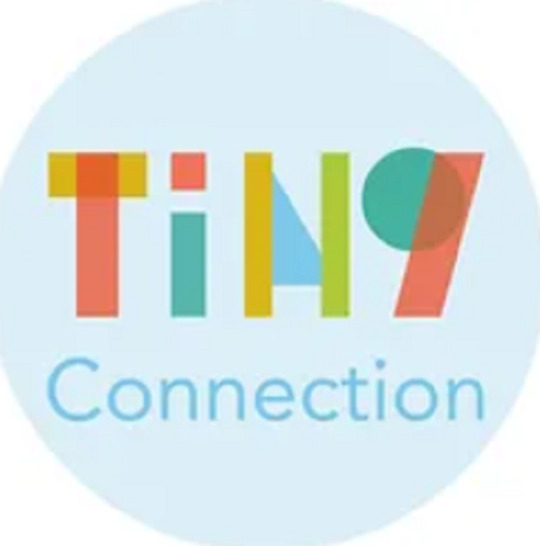
Website: https://www.thetinyconnection.com
Address: Downtown San Bruno, California 94066, United States
Tiny Connection LLC in Downtown San Bruno offers a holistic educational environment for children to grow in all aspects of their development—physically, mentally, emotionally, and socially. With a focus on the Whole Child Approach, our programs include themed parties, private playtime, classes, and more, all designed to foster independence, cooperation, and creative exploration. We emphasize play-based learning and practical skills like language development, mathematics, science exploration, and art expression to prepare children to reach their full potential in a supportive and safe setting.
Keywords:
early childhood education
themed birthday parties
play based learning
child growth and development
learning through play
cognitive development for children
montessori method education
child developmental milestones
social emotional learning for kids
child development programs
interactive learning center
holistic child development
child centered learning
developmentally appropriate activities
comprehensive child development
whole child approach
enrichment programs for children
imaginative play for kids
holistic learning approach
social development for kids
erik erikson social emotional development
emergent curriculum
jean piaget learning theories
dramatic play for children
nurturing young minds
dynamic learning experiences
educational playtime
active learning for children
developmentally appropriate play
playful learning environment
hands on learning for kids
interactive child development
fostering creativity in children
experiential learning for kids
educational play for toddlers
child friendly education
learning through creativity
learning through discovery
educational fun for kids
learning through imagination
educational environment for children
creative exploration for kids
private playtime sessions
motor skills development for kids
social skills development for kids
language skills development for kids
cognitive skills development for kids
independence in learning for kids
choice in learning for kids
meaningful play experiences
language development programs for children
mathematics learning for kids
science exploration activities for kids
art and music expression for children
cultural development for kids
emotional development for kids
educational play center
enriching play experiences
engaging child development
personalized child education
multisensory learning for children
stimulating child learning
specially designed learning environment
tailored child education programs
inclusive child development
lifelong love for learning
safe and nurturing play environment
child focused education
socialization through play
playful exploration for kids
educational toys and activities
integrated learning experiences
playful curriculum
building foundational skills in kids
personalized child learning
childhood development specialists
educational playgroups
educational play workshops
focused child development
developmentally rich activities
child engagement programs
playful educational experiences
child centric curriculum
educational play for preschoolers
stimulating young minds
hands on exploration for kids
guided play for children
playful educational methodologies
play based child enrichment
educational play space
#early childhood education#themed birthday parties#play based learning#child growth and development#learning through play#cognitive development for children#montessori method education#child developmental milestones#social emotional learning for kids#child development programs#interactive learning center#holistic child development#child centered learning#developmentally appropriate activities#comprehensive child development#whole child approach#enrichment programs for children#imaginative play for kids#holistic learning approach#social development for kids#erik erikson social emotional development#emergent curriculum#jean piaget learning theories#dramatic play for children#nurturing young minds#dynamic learning experiences#educational playtime#active learning for children#developmentally appropriate play#playful learning environment
1 note
·
View note
Text
What Separates Play-based Learning in Pre-school.
Play-based learning in pre-nursery schools is a transformative educational approach that sets the stage for a child's lifelong love for learning. In this comprehensive exploration, we delve into the unique characteristics that distinguish play-based learning in pre-nursery schools and why it is instrumental in a child's development. We will also touch upon how this approach aligns with contemporary educational paradigms, keeping in mind the importance of preschools in India, the role of parent apps, and the broader landscape of preschool education

Understanding Play-based Learning in Pre Nursery School
What is Pre-Nursery School?
Pre-nursery schools, often known as nursery or preschools, are the first formal educational settings where children, typically aged between 2 to 3 years, embark on their educational journey. These institutions serve as the initial stepping stones in a child's life, introducing them to structured learning experiences and social interactions.
The Essence of Play-based Learning
Child-Centered Approach:
Play-based learning stands out in pre-nursery schools due to its child-centered philosophy. Unlike traditional instructional methods, which follow a rigid curriculum, play-based learning tailors activities to suit the unique interests, needs, and developmental stages of each child. This approach acknowledges that children are naturally curious and learn best when they are actively engaged in activities that capture their attention and imagination.
Active Engagement:
One of the fundamental distinctions of play-based learning is the emphasis on active engagement. In this setting, children are encouraged to learn by doing, exploring, and experimenting with their surroundings. Hands-on activities and interactive play are the cornerstones of this approach, allowing children to grasp concepts more effectively and retain knowledge through experiential learning.
Creativity and Imagination:
Play-based learning places a premium on nurturing creativity and imagination. Children are given the freedom to express themselves through imaginative play, storytelling, role-playing, and artistic endeavors. These activities stimulate their creativity, foster a sense of wonder, and encourage them to think outside the box.
The Social and Emotional Benefits
Social Development:
A significant advantage of play-based learning in pre-nursery schools is its positive impact on social development. As children engage in various play scenarios, they naturally develop essential social skills such as cooperation, communication, sharing, and conflict resolution. These early interactions with peers lay the foundation for healthy relationships and effective teamwork in the future.
Language Development:
Play-based learning also plays a pivotal role in language development. Through conversations, storytelling, and group activities, children build their vocabulary, comprehension, and verbal expression skills. This rich linguistic environment not only enhances their communication abilities but also fosters a love for language and storytelling.
Problem-Solving Skills:
Problem-solving skills are another key benefit of play-based learning. As children navigate through play scenarios, they often encounter challenges and obstacles. In their efforts to overcome these challenges, they learn to strategize and find solutions independently or through collaboration with their peers. This process nurtures critical thinking and resilience, qualities that serve them well in the future.
Emotional Regulation:
Emotional development is a vital component of a child's growth, and play-based learning provides an ideal platform for nurturing emotional intelligence. Through play, children learn to identify and express their feelings in a safe and supportive environment. They acquire essential skills for recognizing and managing their emotions, setting a strong emotional foundation for life.
Physical Development and Beyond
Physical Development:
Play-based learning encompasses physical development as well. Activities like running, climbing, and manipulating objects improve gross and fine motor skills. These physical activities are crucial for a child's overall physical growth and coordination.
Long-term Love for Learning:
One of the remarkable aspects of play-based learning is that it instills a long-term love for learning. By making education enjoyable and engaging, pre-nursery schools ensure that children view learning as an exciting adventure rather than a chore. This enthusiasm for learning is a valuable asset that continues to drive their educational journey throughout their lives.
Holistic Development and the Modern Context
Holistic Development:
Perhaps the most significant distinction of play-based learning is its commitment to holistic development. This approach recognizes that education extends beyond academics; it encompasses emotional, social, physical, and cognitive growth. Pre-nursery schools are dedicated to nurturing well-rounded individuals who are not only academically proficient but also emotionally intelligent, socially adept, and physically capable.
Preschools in India:
In the context of India, preschool education holds immense importance. It serves as the foundational stage where children are introduced to the formal educational system. The play-based learning approach aligns seamlessly with the cultural and developmental needs of Indian children, providing a strong educational foundation for their future endeavors.
Parent App Integration:
In today's digital age, parent apps play a crucial role in bridging the gap between parents and pre-nursery schools. These apps provide a platform for real-time communication, updates on a child's progress, and a window into the child's daily activities at school. The integration of parent apps into the educational process enhances transparency and strengthens the partnership between parents and schools.
Conclusion: The Play-based Learning Advantage
In conclusion, play-based learning in pre-nursery schools represents a paradigm shift in early childhood education. It places children at the center of their learning journey, fostering active engagement, creativity, social and emotional development, and problem-solving skills. This approach prepares children not only for academic success but also for a lifelong love of learning and holistic development.
As pre-nursery schools continue to play a vital role in the educational landscape of India, the incorporation of play-based learning stands as a beacon of progress. It aligns with contemporary educational paradigms, emphasizing the importance of nurturing well-rounded individuals who are prepared to thrive in the modern world. With the integration of the parent app, the collaboration between parents and schools in fostering a child's development is further strengthened, ensuring a brighter future for the young minds of India.
Originally Published by HelloParent.
0 notes
